Cat Vaccinations & Health Checks
Combine your cat’s annual vaccinations with a wellness check to minimise vet trips and keep them purring year-round. We use a caring and gentle approach to put your feline at ease during their visit.
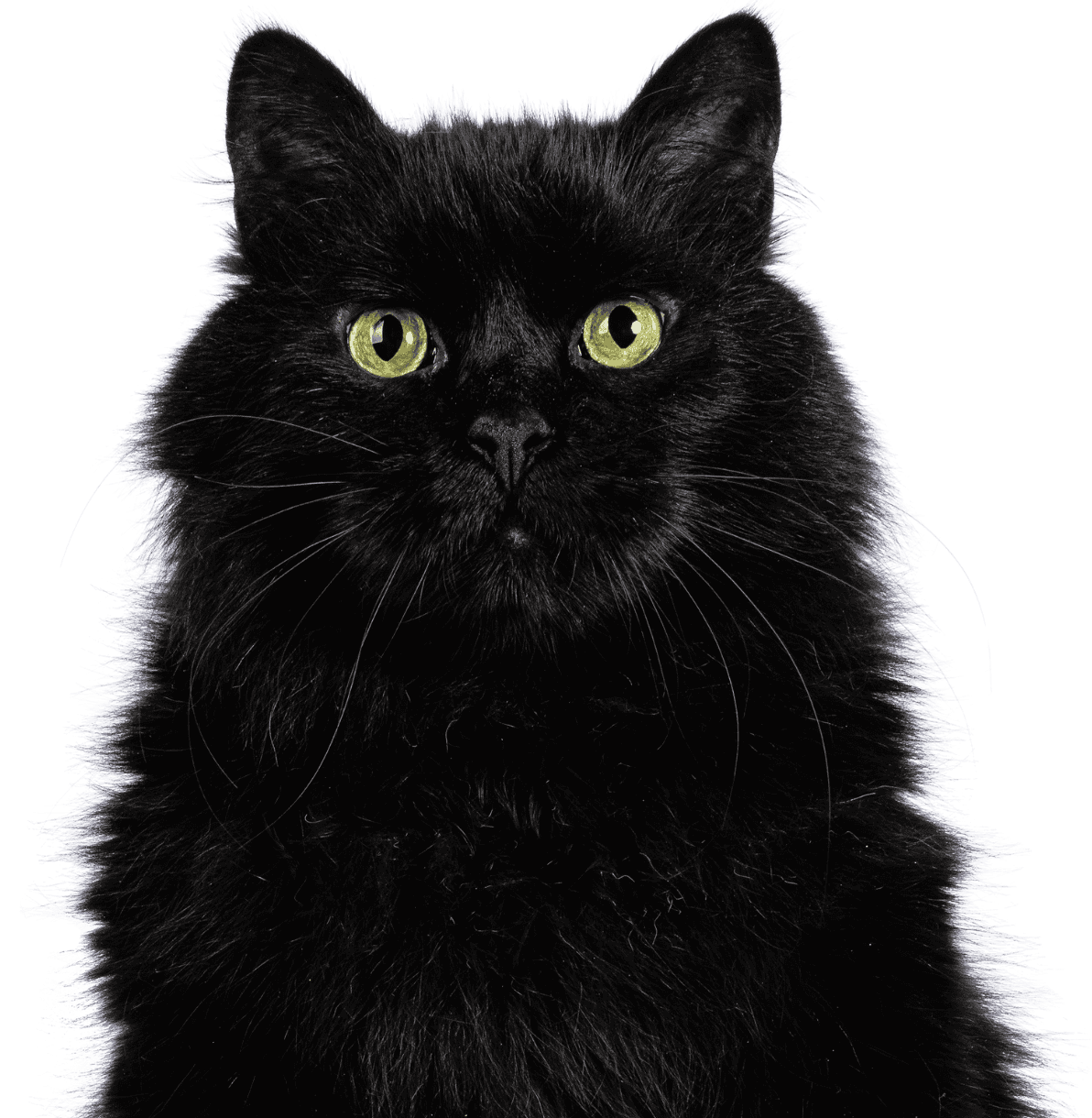
Trustindex verifies that the original source of the review is Google. Always greeted with a warm welcome, vets and nurses are all so kind and caringTrustindex verifies that the original source of the review is Google. One of the best and caring vets I've been to.Trustindex verifies that the original source of the review is Google. They helped bring a little comfort and kindness during an otherwise heartbreaking time.Trustindex verifies that the original source of the review is Google. These ladies (and Tim!) are the best in the business in my opinion. They were so patient and loving with my boy Marvin, they were helpful and answered any and all questions I had. He was spoilt rotten with cuddles and treats and I can bet he is excited for his next visit already. Thank you to the Moffat Beach Vets team!!Trustindex verifies that the original source of the review is Google. My first visit to your Veterinary Practice where I registered my little dog Georgie Girl. It was a wonderful experience. Dr Belinda who examined Georgie was amazing and suggested a number of things that may help towards Georgie 's wellbeing. I would have no hesitation in recommending Dr Belinda at Moffat Beach Vets to my friends. She was so easy to talk to and Georgie was so relaxed when she was examined, which is normally unusual for her. The Vet Nurse Taylor was also very friendly and helpful. I would definitely let all my friends know about Moffat Beach Vets.Trustindex verifies that the original source of the review is Google. Brilliant and super friendly and helpfulTrustindex verifies that the original source of the review is Google. All staff are welcoming and knowledgeable!! They make it so easier for me to book my pet in around work schedules which I appreciate!! Staff are always happy to see you and conversations are so easy!Trustindex verifies that the original source of the review is Google. My fur baby Bella who is a rescue hates anyone thats breathing an warm red blood running through their veins. I'm not joking. Thanks to the wonderful staff they can not only wash her but clip her nails. I have 3 fur babies an I never have to drag them in there. Powderpuff actually runs in there to greet them. The first 2 months of taking Bella to get groomed they call me to say they can't get her to come out of the cage. I kept taking her there an they finally won her over.Verified by TrustindexTrustindex verified badge is the Universal Symbol of Trust. Only the greatest companies can get the verified badge who has a review score above 4.5, based on customer reviews over the past 12 months. Read more
Preventative Care for Your Kitty
Yearly vaccinations combined with a comprehensive health check gives your cat the best quality of life possible. Cats hide their ailments well, so an annual exam allows us to catch anything before it gets out of hand!
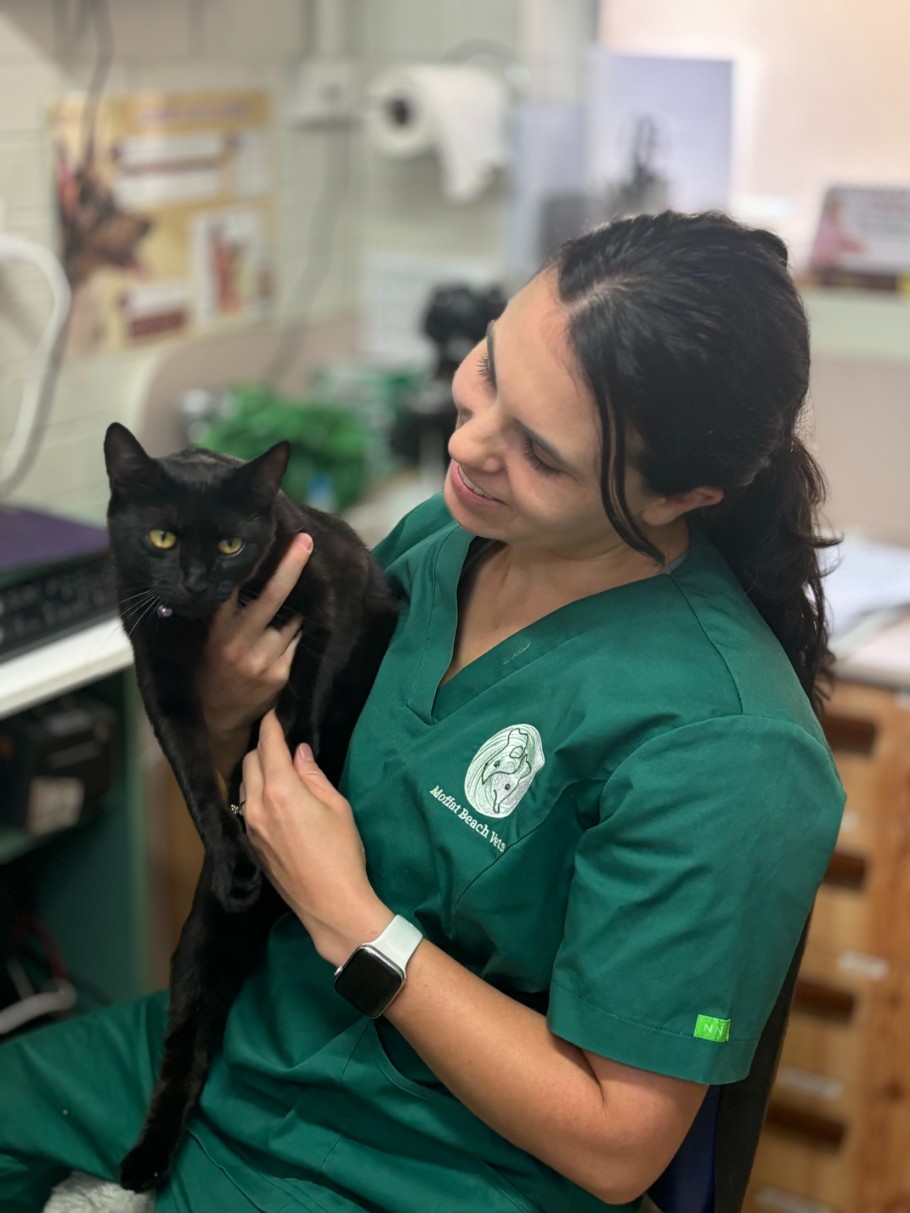
What Our $95 Nose to Tail Exam Includes

Physical Examination
Eyes, ears, mouth, gums, lymph nodes, legs, abdomen, lumps & bumps.

Diagnostic Exam
TPR Check: Temperature, Pulse, & Respiration. + Blood & urine tests as needed (lab fees apply).

Annual Vaccination +$45
F3 Vaccines and/or FIV (feline immunodeficiency virus) Vaccines.

Chat With Vet
Annual health checks are a great opportunity to ask us about nutrition, pet food, behaviour or any other topics.
Did you know?
A cat’s average lifespan is 15-20 years.
Cats make excellent long-term companions and are wonderful pets. Routine vaccinations, worming and flea control allow them to live a full, happy life.
Regular visits help us diagnose, treat or even prevent health problems before they become life-threatening. We can also provide additional guidance on nutrition, behaviour, training and life-stage treatments available.
What F3 Vaccines Protect Cats Against
Feline Rhinotracheitis (Herpesvirus)
Reline rhinotracheitis induces inflammation and infection in the eyes, sinus area, and respiratory tract.
Feline Panleukopenia
Feline panleukopenia is a viral infection caused by parvovirus, primarily affecting kittens. Common symptoms include lethargy, loss of appetite, high fever, vomiting, diarrhea, and severe dehydration. It is highly contagious and potential fatal.
Feline Calicivirus (FCV)
Kitten Vaccinations
Kittens are ‘temporarily’ protected against many diseases by antibodies received through their mother’s milk. These maternal antibodies decline in the first couple of months of their lives, after which vaccinations are required to induce immunity against disease. A series of vaccinations is necessary for a kitten to adequately stimulate the immune system.
Kitten vaccination programs consist of at least two vaccinations, 3-4 weeks apart. These shots can protect against: feline panleukopenia virus, feline calicivirus, feline herpesvirus, Chlamydia felis and feline leukaemia virus.
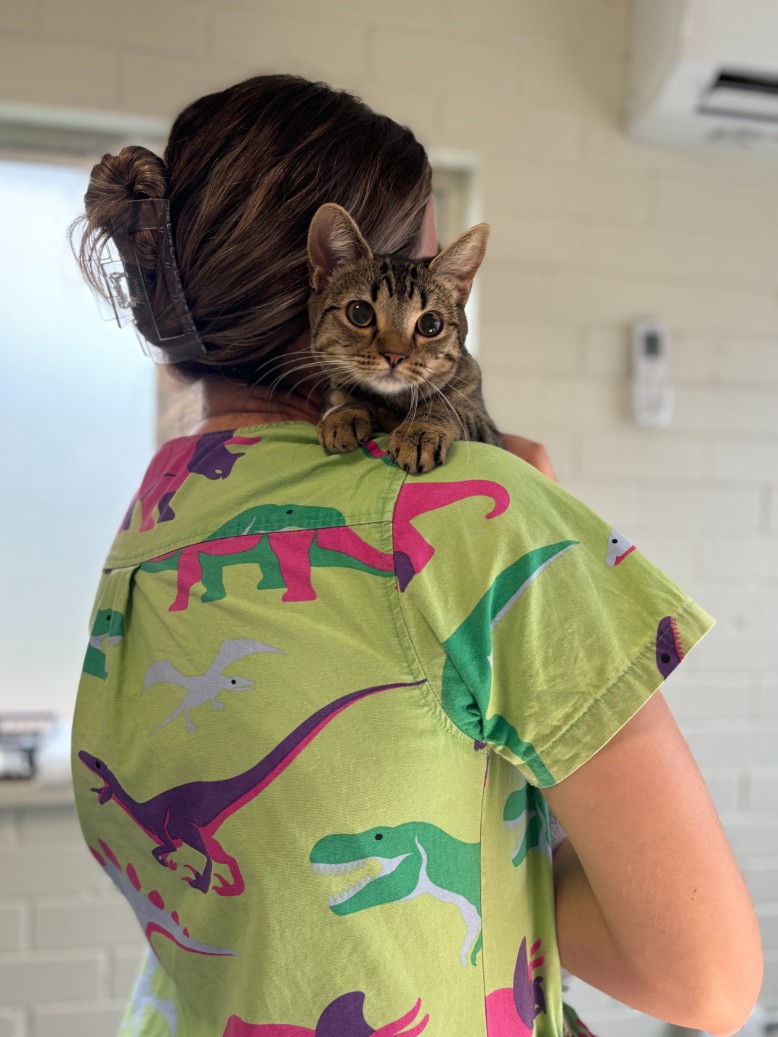
Calm Visits With Our Fear Free Approach
At our vet clinic, your cat will receive sound advice and professional care from our feline specialists.
We help you understand the health care and treatment options available for your kitty. This includes calming care options that can be implemented before or after your visit.
Our vets will equip you to make the best health care decisions for your cat.
What to Expect from Our Clinic

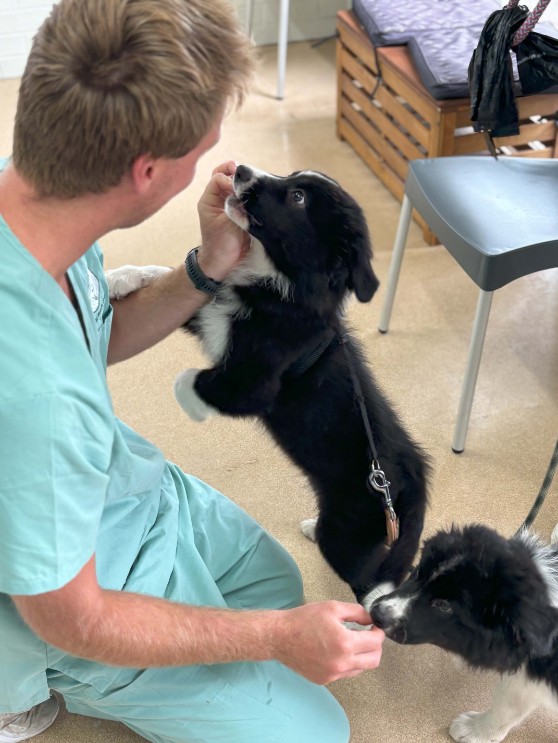
Prompt Service
We have a range of methods and practices that we can use to ensure your pet has an anxiety free visit at our Caloundra area clinic. Enquire about these with our team.
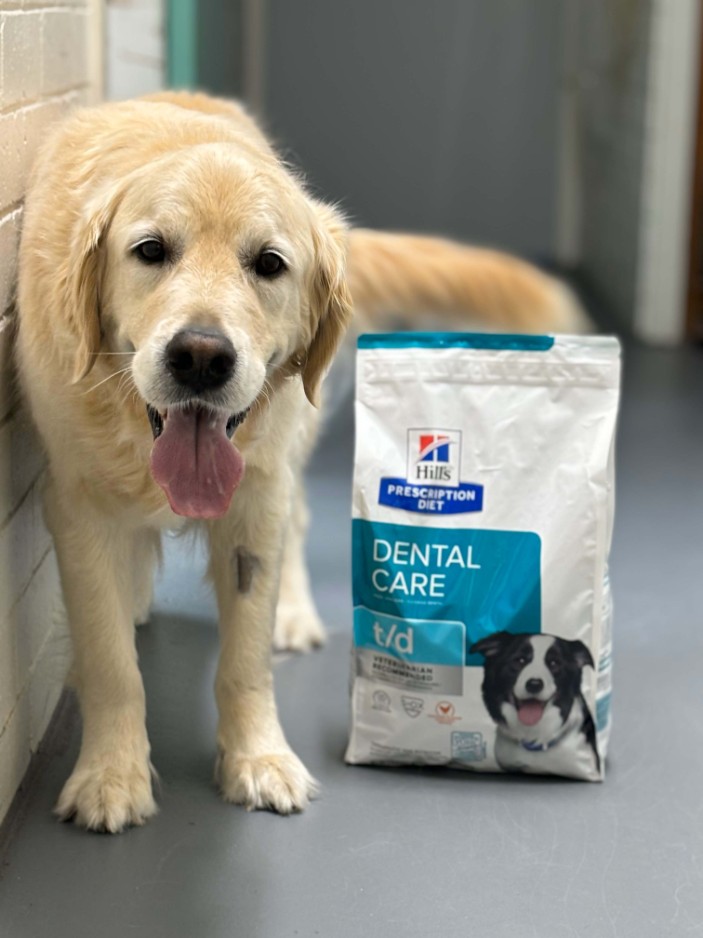
Fear Free Approach
Whether it’s offering extra cuddles, taking things slow, or just being a familiar, friendly face, your pet’s comfort is always our top priority.
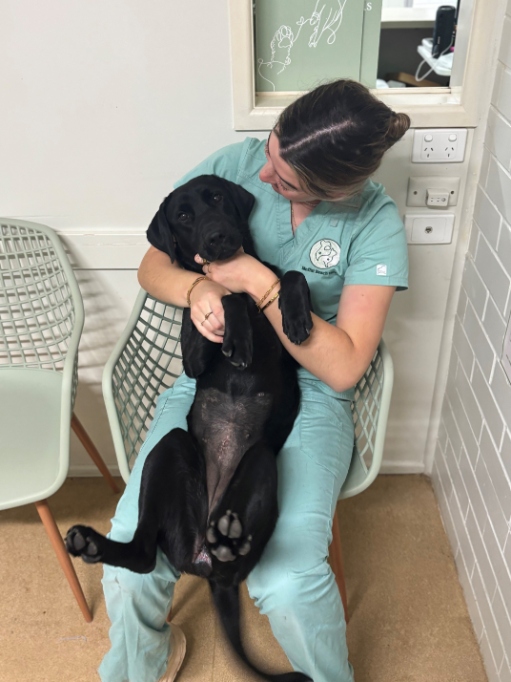
Caring Staff
Our team treats your pet like family. With gentle hands and a true love for animals, we do everything we can to make your fur baby feel safe, calm, and cared for throughout their visit.
Wellness Exams for Senior Cats
As cats age, they become more susceptible to a variety of health issues, including:
- Chronic kidney disease
- Diabetes and hyperthyroidism
- Heart disease
- Cancer
- High blood pressure
- Arthritis and joint problems
- Obesity
- Dental disease
During our comprehensive veterinary check-up, we will assess your senior cat’s weight, teeth, joints, blood pressure, blood and urine. These in-depth examination allows us to detect early signs of illness.
Senior cats should be reassessed every 6 months to catch any health issues early and ensure proper treatment.
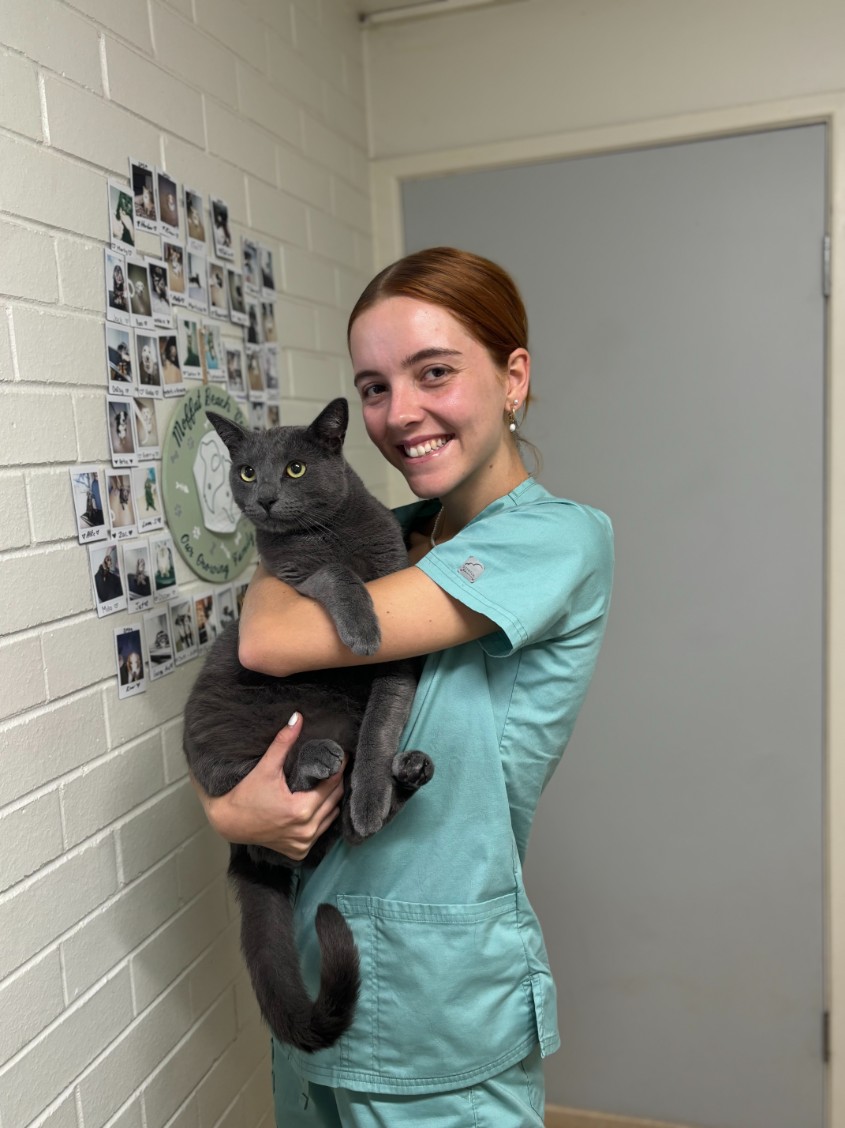
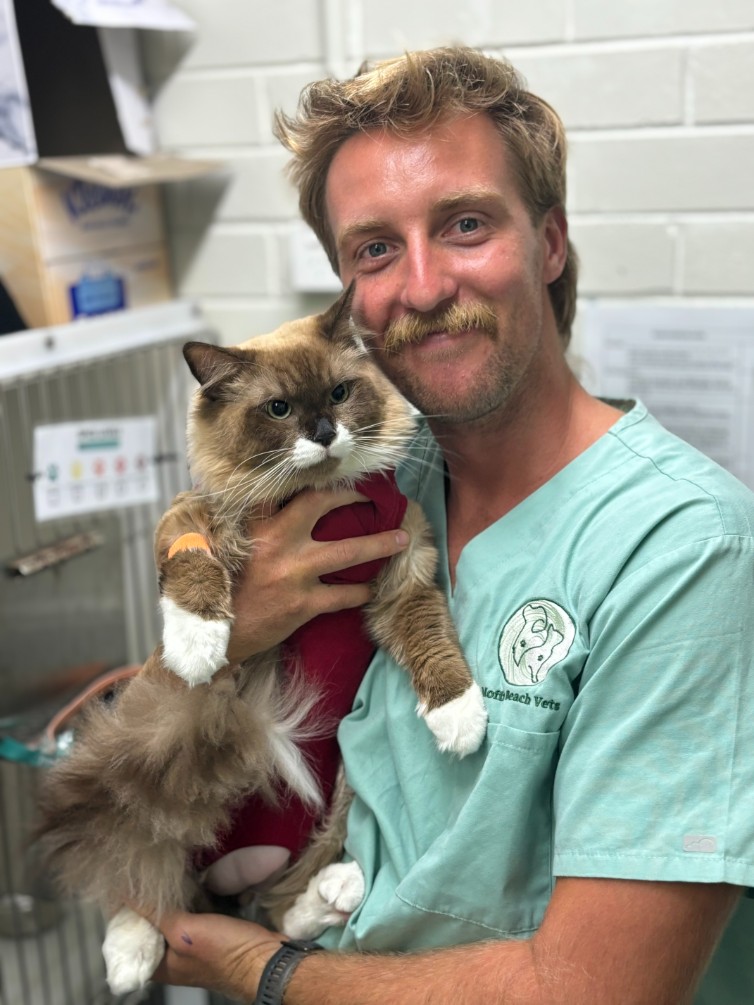
Common Diseases that Affect Cats
The immunity from kitten vaccination weakens over time, making your cat more susceptible to contracting the diseases below.
Feline Panleukopenia Virus
This is a very contagious disease and the death rate is high, especially for young cats under 12 months of age.
Pregnant cats may lose their young or give birth to kittens with abnormalities such as brain damage.
Symptoms of feline panleukopenia are depression, loss of appetite, uncontrollable vomiting and diarrhoea, often with blood and severe abdominal pain. The virus spreads so easily that heavily contaminated areas may need cleaning with a special disinfectant.
Feline Respiratory Disease (‘Cat Flu’)
90% of ‘cat flu’ cases are caused by feline herpesvirus (also known as feline rhinotracheitis) and/or feline calicivirus.
Feline respiratory disease affects cats of all ages, especially young kittens. It is highly contagious and causes sneezing, coughing, runny eyes, nasal discharge, loss of appetite and tongue ulcers.
Fortunately, the death rate is low except in young kittens, but the disease is distressing and clinical signs may persist for several weeks. Recovered cats can continue to carry and spread the infection for long periods, and can show signs of the disease again if they become stressed.
Feline Immunodeficiency Virus (FIV)
Feline immunodeficiency virus (FIV) attacks a cat’s immune system, similar to HIV in humans.
Infected cats’ natural defence against other diseases may be seriously affected, much in the same way as human AIDS. However, FIV is not transmissible to humans. FIV is almost always transmitted by bites from infected cats, since the virus that causes the disease is present in saliva.
While some infected cats show no sign of disease, others may display initial symptoms such as fever, loss of appetite, diarrhoea, lethargy and swollen lymph nodes.
As the disease progresses, symptoms may occur such as weight loss, sores in and around the mouth, eye lesions, poor coat and chronic infections.
Eventually, the immune system may become too weak to fight off other infections and diseases. As a result, the cat may die from one of these subsequent infections. Unfortunately in Australia, FIV is very common, with 1 in 7 cats with outdoor access infected with this virus.
Feline Leukaemia Virus (FeLV)
Feline leukaemia virus attacks a feline’s immune system. Symptoms include lack of appetite, weight loss and apathy, pale or yellow gums, vomiting, diarrhoea, reproductive problems, increased susceptibility to other infections, leukaemia and tumours.
Cats may be infected and show no signs at all. About one third of infected cats remain chronically infected and may shed virus in their saliva, tears, nasal secretions and urine.
The disease is then spread to uninfected cats through close contact (e.g. shared food/water bowls, mutual grooming), fighting, sneezing or even flea bites.
Chlamydia felis
Chlamydia felis is a bacterial disease which is responsible for up to 30% of conjunctivitis in cats, and causes severe and persistent signs.
Kittens are more commonly affected by Chlamydia felis when also infected with “Cat Flu”. Chlamydia felis can be shed for many months. Vaccination against cat flu and Chlamydia felis helps protects against clinical disease.
Common Questions Asked By Cat Owners
Everything you need to know about yearly cat shots and health checks. Can’t find an answer? Contact our team.
What vaccinations do cats need in Australia?
Core vaccines for cats in Australia include:
- F3 vaccine (protects against feline herpesvirus, calicivirus, and panleukopenia)
- FIV vaccine (for feline immunodeficiency virus, recommended for outdoor or high-risk cats)
- FeLV vaccine (for feline leukemia virus, recommended for outdoor cats or multi-cat households)
Your vet will recommend a vaccination schedule based on your cat’s lifestyle.
Do indoor cats need flea, tick, and worm prevention?
Yes! Fleas can be brought inside on clothing or other pets, and ticks pose a risk if your cat has outdoor access.
Worms can also be picked up from fleas or the environment.
Regular prevention keeps your cat safe—ask your vet for the best plan.
Do indoor cats need vaccines?
Yes, even indoor cats should be vaccinated.
Core vaccinations, like the F3 vaccine, protect against airborne viruses and diseases that can be brought inside on clothing or shoes. If your cat ever escapes or needs boarding, vaccinations ensure they are protected.
How often do cats need to be dewormed?
- Kittens: Every 2 weeks until 12 weeks of age, then monthly until 6 months old.
- Adult cats: Every 3 months (or more frequently for outdoor cats or those that hunt).
Regular deworming helps protect against parasites like roundworms, hookworms, and tapeworms.



